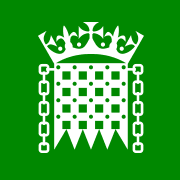The GOV.UK ID Check App Controversy: Separating Fact from Fiction in Britain's Digital ID Debate
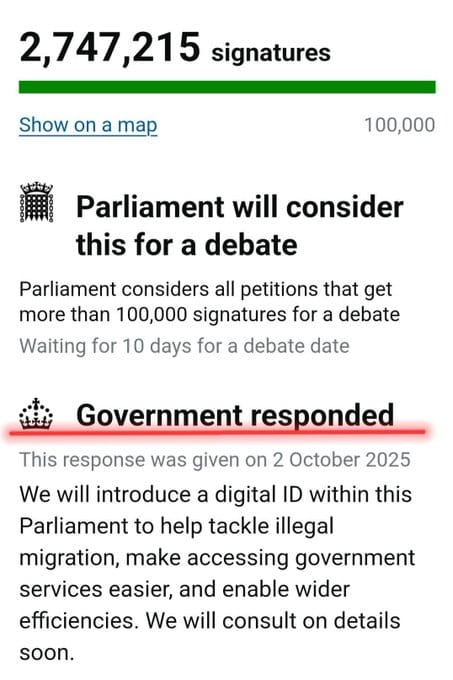
What's Actually Happening with Digital ID in the UK
The UK government announced on September 25, 2025, plans to introduce a mandatory digital ID system for all working-age adults by the end of this Parliament. Prime Minister Keir Starmer stated that digital ID will be mandatory for Right to Work checks, with the system designed to combat illegal working and make accessing government services easier.
This development places the UK firmly within a global trend toward digital identity systems, with over 100 countries worldwide having implemented or currently developing similar national frameworks. However, the UK's approach has sparked unprecedented public opposition and raised serious questions about privacy, surveillance, and democratic accountability.
For a comprehensive analysis of the privacy and civil liberty implications, see our detailed investigation: UK's Mandatory "Brit Card" Digital ID: A Deep Dive Into Privacy and Civil Liberty Concerns.
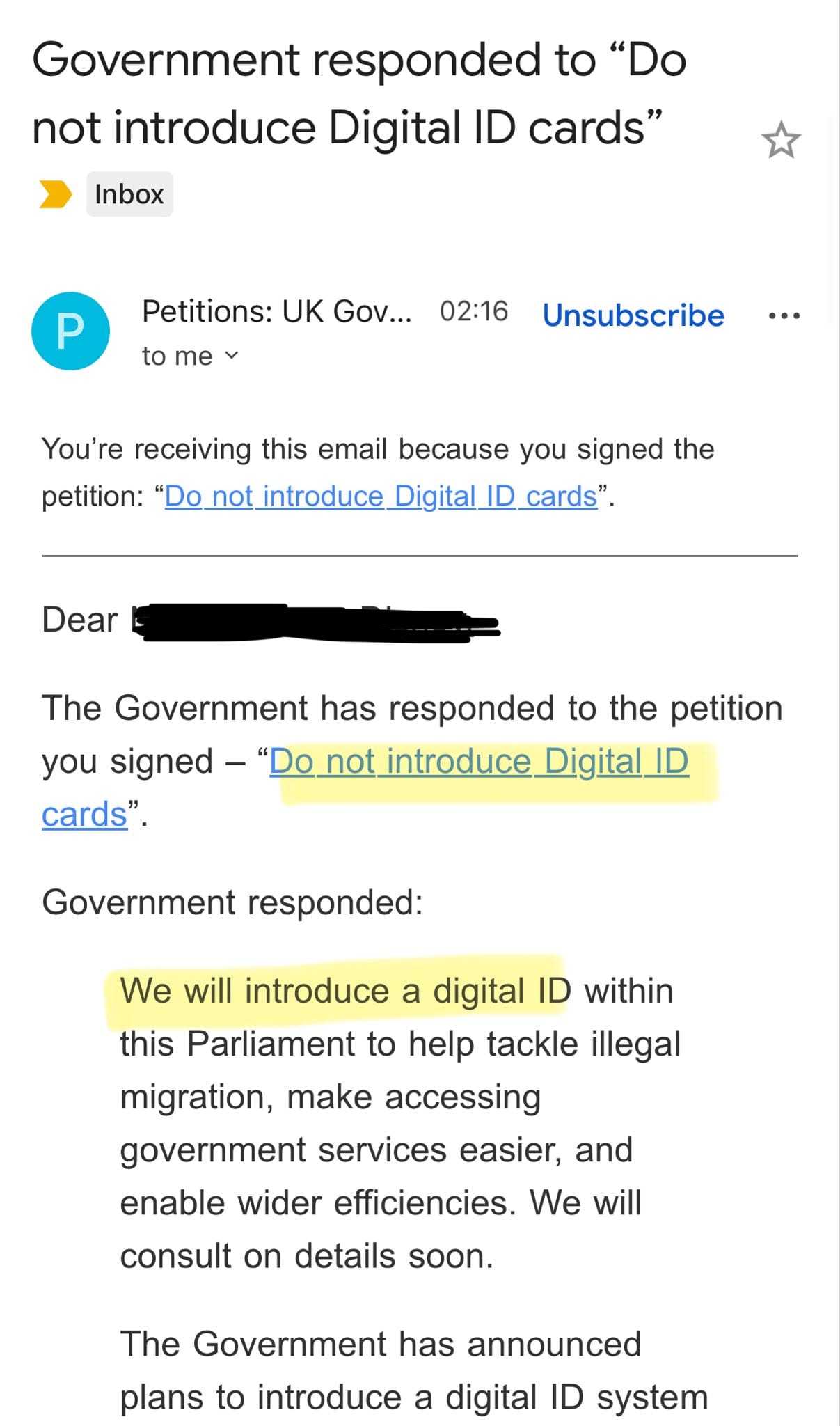
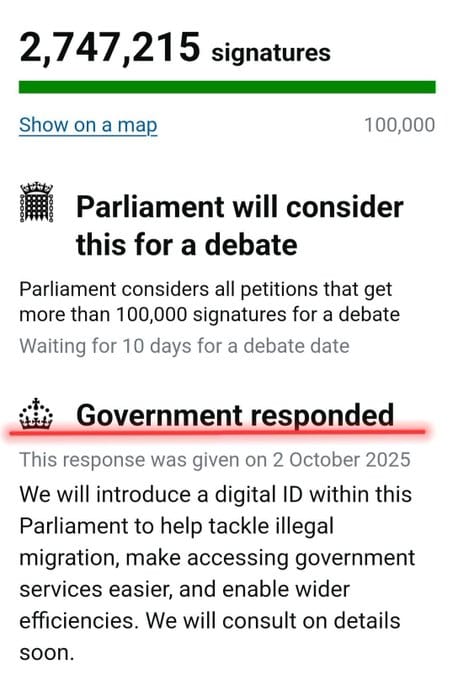
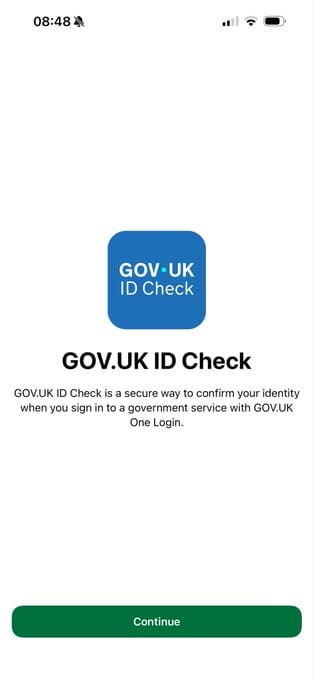


The Petition Response That Sparked Outrage
Over 2.76 million people signed a petition demanding the government not introduce digital ID cards. On October 2, 2025, the government responded by stating: "We will introduce a digital ID within this Parliament to help tackle illegal migration, make accessing government services easier, and enable wider efficiencies."
The response has provoked fury among critics who feel the government is ignoring public opposition. Many signatories feel dismissed, as the government's first line essentially contradicted the petition's request entirely. The dismissive tone echoes concerns raised in our analysis of Denmark's controversial approach to EU digital surveillance regulations, where democratic oversight has been similarly bypassed.
About the GOV.UK ID Check App: The Facts
Here's what we know about the actual app currently in circulation:
The GOV.UK ID Check app has been available since at least 2022 and is downloaded from the Apple App Store or Google Play Store. It's used to verify identity when accessing certain government services through GOV.UK One Login by matching your face to photo ID.
According to official government guidance, users are directed to download the app when needed for specific government services. You scan a QR code to download it when accessing services that require identity verification.
The Critical Features:
- Biometric verification: Scans your face and compares it to photo ID
- Document scanning: Reads biometric chips in passports and residence permits
- Identity confirmation: Links to GOV.UK One Login for service access
- Data handling: Government claims data is not stored on the device after use
The Pre-Installation Claim: What's the Evidence?
CRITICAL FINDING: My research found no credible evidence that the GOV.UK ID Check app is being secretly or automatically installed on people's phones without their knowledge or consent.
What the Evidence Shows:
- The app has over 1 million downloads on Google Play and over 100,000 on iOS, suggesting people are downloading it themselves when needed
- All official documentation describes it as an app users download when prompted
- No news reports from credible sources confirm secret installation
- Apple and Google's app stores require user consent for downloads
Possible Explanations for the Confusion:
- System updates: Some users may have previously downloaded the app and forgotten, with it reappearing after an update
- Pre-existing downloads: The app may have been downloaded months ago for a specific service and users didn't realize
- App suggestions: Some phones show "suggested apps" based on web browsing, which could appear similar to automatic installation
- Misinformation spread: In times of heightened concern about surveillance, unverified claims spread rapidly on social media
What the Digital ID Will Actually Be
The planned digital ID will be stored in a GOV.UK digital wallet on people's phones, similar to the NHS App or mobile payment services. It will include name, date of birth, nationality or residency status, and a photo for biometric security. The government states it will not be a physical card and that people won't be required to carry it or produce it on demand.
The system will be free for all UK citizens and legal residents aged 16 and over, though consultation may consider lowering this to age 13.
Comparison with International Models
The UK's approach differs from various international implementations:
- Estonia's model: Often cited by the government, but Estonia built trust gradually with strong privacy protections
- India's Aadhaar: The world's largest biometric system, plagued by data breaches affecting hundreds of millions
- EU Digital Identity Wallet: A federated approach with cross-border interoperability (see our policy briefing on global digital identity models)
- Russia's MAX app: A concerning example of state-linked digital surveillance (detailed analysis here)
For a comprehensive overview of how different countries are implementing digital ID systems, see our Global Digital ID Systems Status Report 2025.
The Privacy and Civil Liberties Concerns
Civil liberties groups including Big Brother Watch, Privacy International, and the Liberal Democrats have expressed strong opposition. Critics argue this represents a step toward mass surveillance and authoritarian control, with concerns about data privacy and government overreach.
Liberty has warned that digital IDs could turn into "a nightmarish surveillance system," noting that technological advancements mean digital ID systems pose even greater risks to privacy than when last proposed in the 2000s.
The Broader Context of Digital Surveillance
The UK's digital ID push doesn't exist in isolation. It's part of a broader pattern of digital control mechanisms being implemented across Europe and globally:
- Chat Control proposals: The EU's controversial online surveillance measures have faced repeated opposition (latest update on Chat Control's failures)
- Age verification systems: Being used as a gateway to digital ID requirements (see our analysis of Arizona's biometric digital ID law for adult websites)
- EU Entry/Exit System: Biometric border controls expanding surveillance infrastructure (details on the system launching for US travelers)
Historical Precedent: Lessons from Switzerland
The UK is not the first country to face fierce opposition to digital ID systems. Switzerland's experience with e-ID proposals offers important lessons. In 2021, Swiss voters rejected a government-backed digital ID system in a referendum, with privacy concerns playing a central role. The debate split the nation and highlighted the fundamental tensions between convenience and privacy. Read our full analysis: The Swiss e-ID Referendum: A Privacy Battleground That Divided a Nation.
What Happens Next
The government will launch a public consultation in the coming weeks and will work with employers, trade unions, civil society groups and other stakeholders to co-design the scheme. Following consultation, they will seek to bring forward legislation to underpin the system.
The petition has reached the threshold for parliamentary debate, with Parliament required to consider petitions that receive over 100,000 signatures. The debate is expected within the next 11 days.
Timeline:
- October 2025: Government response to petition
- Coming weeks: Public consultation launch
- Parliamentary debate: Required due to petition signatures
- Legislation process: Required for implementation
- Potential rollout: By end of this Parliament (2029)

Key Questions Citizens Should Ask
During the consultation period, citizens should demand clear answers to:
- What specific safeguards will prevent mission creep? The government claims this is for Right to Work checks, but history shows such systems expand their scope
- How will the government protect against data breaches? Given the UK government's track record of data failures
- What happens to those who cannot or will not comply? Elderly people without smartphones, vulnerable populations
- What are the penalties for non-compliance? Will refusal to participate result in inability to work or access services?
- Who will have access to the data collected? What about police, intelligence services, private companies?
- How long will data be retained? What deletion policies will be in place?
- Will the data be shared with foreign governments? Particularly concerning given Five Eyes intelligence sharing
- Can citizens opt out of specific uses? Or is it all-or-nothing?
Bottom Line
While the UK government is definitely moving forward with mandatory digital ID despite massive public opposition, there is currently no evidence that GOV.UK ID Check apps are being secretly installed on phones. The existing app requires manual download through official app stores.
However, the government's dismissive response to nearly 3 million petition signatures and the mandatory nature of the planned digital ID system raise legitimate concerns about democratic accountability and civil liberties that deserve serious public debate.
The Bigger Picture
The UK's digital ID proposal represents a critical moment in the broader struggle over digital privacy and state surveillance. As explored in our comprehensive policy briefing on global digital identity landscapes, countries around the world are grappling with how to balance security, convenience, and privacy in the digital age.
The decisions made in the coming months will not only affect the UK but could set precedents for other democracies considering similar systems. The pattern of governments dismissing public concerns while pushing ahead with surveillance infrastructure—as seen in the Danish approach to EU digital regulations—suggests that citizen vigilance and resistance remain crucial.
Take Action
If you're concerned about these proposals:
- Contact your MP: Express your views on mandatory digital ID clearly and specifically
- Respond to the consultation: When launched, make your voice heard in the official process with detailed, fact-based submissions
- Support civil liberties organizations: Groups like Big Brother Watch, Liberty, Open Rights Group, and Privacy International are leading the resistance and need public support
- Stay informed: Follow developments through reputable sources and share accurate information
- Verify before sharing: Combat misinformation by checking claims before spreading them on social media
- Protect your current privacy: Consider your digital footprint and take steps to minimize unnecessary data sharing now
Important Note on Misinformation
It's crucial to verify claims with multiple credible sources before sharing alarm stories on social media. While skepticism about government surveillance is healthy and warranted, spreading unverified claims can:
- Undermine legitimate privacy concerns
- Provide ammunition to dismiss all criticism as conspiracy theories
- Distract from the real, documented issues with the digital ID proposal
- Create a "boy who cried wolf" effect that damages the credibility of privacy advocates
The actual, documented concerns about the UK's digital ID system are serious enough without needing to embellish them with unverified claims about secret app installations.
About This Investigation: This analysis is based on comprehensive research using official government documents, app store data, civil society responses, and international comparisons. As a privacy-focused publication, we believe citizens deserve accurate information to make informed decisions about their digital rights.
Last Updated: October 3, 2025
Related Reading:
- UK's Mandatory "Brit Card" Digital ID: A Deep Dive Into Privacy and Civil Liberty Concerns
- Global Digital ID Systems Status Report 2025
- Policy Briefing: The Global Digital Identity Landscape
- How Denmark is Accused of Manufacturing a Crisis to Impose Mass Surveillance
- EU Chat Control Fails Again
- The Swiss e-ID Referendum: A Privacy Battleground
- Russia Pilots State-Linked Digital ID Through MAX App
Tags: #DigitalID #UKPrivacy #CivilLiberties #Surveillance #FactCheck #DataProtection #HumanRights #OnlinePrivacy #BritCard #GovUKIDCheck


